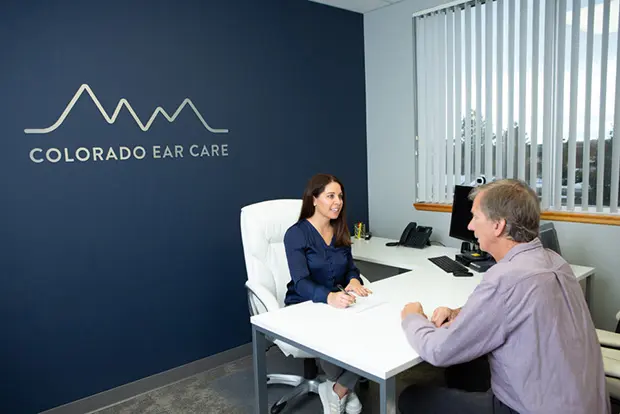What are over-the-counter hearing aids?
With recent changes in legislation, the Federal Drug Administration has increased access to hearing technology by essentially creating a new product category in the marketplace: over-the-counter (or OTC) hearing aids.
In the past, all hearing aids were considered medical grade devices, and these devices could only be prescribed by a hearing care professional, such as an audiologist. Now, with the introduction of this new product category, certain hearing aid technology can now be sold in retail outlets, such as drug stores, pharmacies, and yes, audiology clinics such as our own.
While personal sound amplification products (also known as PSAPs) have long been available, these devices are distinctly different from hearing aids: they are not medical-grade, not regulated by the FDA, and are typically only capable of amplifying sound, and can actually cause long-term damage to the wearer’s hearing. We do not recommend PSAPs.
OTC hearing aids are different from PSAPs. They are hearing aids through and through. However, their features, processing capabilities, customization, and even level of amplification are often quite different from prescription grade hearing aids.
Additionally, who OTC hearing aids are best suited for is another critical difference between these and their prescription counterparts. So who, exactly, are OTC hearing aids for? Let’s get into it.
Are over the counter hearing aids right for me?
This is a question that we’re starting to hear more and more, now that OTC legislation has passed and there are new products entering the market.
Over-the-counter hearing aids are designed to support adults aged 18 and up who have mild-to-moderate levels of hearing loss. What does this mean?
Well, according to the American Speech-Language-Hearing Association, mild to moderate hearing loss is categorized as hearing loss where a person is unable to hear sounds at a range of 25 to 40 decibels.
Here’s the thing, though: How could the layperson possibly know to what degree of hearing loss they’re experiencing in decibels?
This is why, despite a prescription not being necessary to purchase an OTC hearing aid, we still recommend you see a hearing care provider so that you know precisely what type of hearing loss you have, and what device would best support your needs.
Listen, there’s a lot of information out there right now about OTC hearing aids. Every manufacturer wants their technology in your ears, and while we appreciate the fact that this new product category is designed to help more people get the care they need, without the right professional guidance, many folks might not get the experiences they deserve.
The Colorado Ear Care approach to OTC
At Colorado Ear Care, our commitment has always been to ensure our patients get the hearing care experience that they deserve, and with OTC, it’s no different.
So, are you a good candidate for over-the-counter hearing aids? You might be! Here are seven important factors to consider:
Cost is a major factor
OTC hearing aids can often be less expensive than their prescription-level counterparts. Remember, these devices can be far more limited in terms of their options, features, processing power, and customization. However, what you might be sacrificing in terms of flexibility, you might be making up for simply by having your hearing supported by this technology.
You’re an adult in need of hearing care
As defined in the OTC legislation, these hearing aids are not designed for children. OTC hearing aids are for adults age 18 and up. Why? Well, part of it is size. Currently, OTC hearing aids are one-size-fits all, and are too large for most children’s ears. Additionally, there is concern for over- and even under-amplification when it comes to kids wearing OTC.
You have a true mild-to-moderate hearing loss
Remember, your hearing should be in that 25 to 40 decibel loss range in order to be considered an appropriate candidate for OTC. But how would you know? Again, that’s where hearing testing comes into play, and can ensure you’re getting the technology that will actually support your needs.
You don’t have insurance, or your don’t want to involve your insurance
Many insurance providers offer a hearing aid benefit, and depending on your plan, may cover a significant portion of your care and even your technology. OTC hearing aids are typically not covered under these benefits, making them a more appropriate option for people who don’t have coverage but are in need of this technology.
Customization doesn’t really matter much to you
Some people prefer fewer features vs. all of the bells and whistles that many wearers have grown to love. Smartphone compatibility, automatic location adjustment, and the like are unnecessary for some folks. OTC offers fewer features, which can be a simpler experience.
You’re good dealing with technology troubleshooting on your own
A major difference between prescription-grade technology and OTC is the support you get. When you purchase through a hearing care provider, you’ll generally receive a support package that will include adjustments, cleanings, warranties, and more, depending on where you purchase and the age of your device.
With OTC, generally speaking, you make your purchase and you’re on your own.
So, are OTC devices the right option for you? The only way to know for sure is by getting your hearing tested. Contact Colorado Ear Care TODAY for your hearing evaluation appointment!

